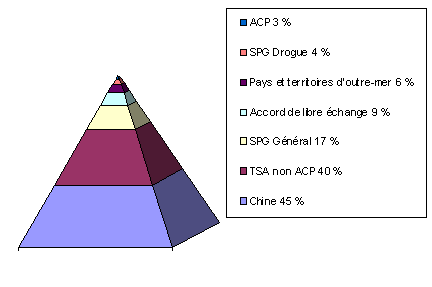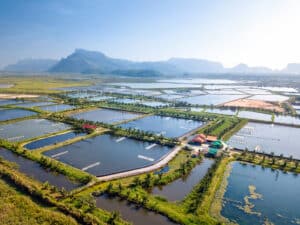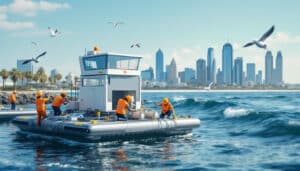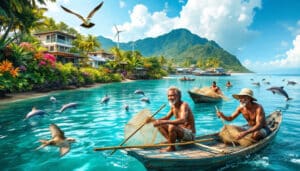While the fishing sector is being tested by overfishing and the degradation of marine resources, India firmly positions itself in favor of a balance in the subsidy rules established by the WTO. Indeed, the country emphasizes the urgency of reevaluating the fishing subsidies that exacerbate overcapacity and undermine the sustainability of already threatened fish stocks. During recent negotiations, the Indian Minister of Commerce described the draft agreement currently under negotiation as “weak,” revealing the dissatisfaction of a nation that heavily relies on its marine resources for food security and the livelihoods of its coastal populations. India therefore urges the international community to adopt a more equitable approach, ensuring that subsidies support not only economic growth but also environmental sustainability. In this perspective, the issue of fishing subsidies cannot be dissociated from broader concerns related to social justice and the preservation of the marine ecosystem.

The issue of fishing subsidies has become a central topic in multilateral discussions, particularly within the World Trade Organization (WTO). India, as a country where artisanal fishing represents a significant part of the local economy and food security, demands a reevaluation of the subsidy rules, calling for a fair balance between rich and poor nations. In this context, it is essential to explore India’s motivations, the challenges it faces, and the potential implications for the future of global fishing.
Table of Contents
ToggleA Committed Country: The Socio-Economic Stakes of Fishing Subsidies in India
To better understand India’s position, it is helpful to examine the socio-economic landscape surrounding fishing. More than 14 million people in India directly depend on fishing and aquaculture activities for their livelihoods. These vulnerable communities are fighting against the detrimental effects of overfishing subsidies that often benefit large corporations more than artisanal fishermen. As a result, marine resources are threatened, jeopardizing the livelihoods of millions of fishermen.
Recent studies, such as one conducted by the Food and Agriculture Organization of the United Nations (FAO), estimate that global fishing subsidies amount to between 14 and 54 billion dollars per year. This figure illustrates the enormity of the finances allocated to fishing, but also the ineffectiveness of some of these subsidies that contribute to increased overcapacity and overfishing. India fears that the new rules proposed at the WTO will leave insufficient room for its artisanal fishermen. This concern is all the more justified as developed countries benefit from access to marine resources while ensuring a favorable framework for their own fishing industries.
A striking example of this dynamic is the Gujarat region, where local fishermen oppose large industrial fishing companies that, through government subsidies, are increasing their catch capacity, further jeopardizing fish stocks. Local fishermen are therefore weakened in their own market, while the sustainability of marine resources is compromised.
The Indian Advocacy: Towards an Equitable Framework for All WTO Member Countries
Drawing the attention of other WTO members, India argues for the revision of fishing subsidy rules to ensure a fair balance. The Indian Minister of Commerce has described the draft agreement on fishing subsidies as “unacceptable,” stating that it does not address the real challenges faced by developing countries. It is in this perspective that India proposes the establishment of an alternative funding mechanism.
This mechanism could focus on transitioning fishermen to sustainable fishing practices while ensuring their livelihoods. The reform of existing subsidies should also consider regional particularities in terms of marine biodiversity and livelihoods. India insists that each member country must apply rules based on its own economic needs and levels of development.
Moreover, India calls for strengthening capacities within developing countries to enable them to sustain their fish resources in the long term. Through technical assistance and training, these countries could adopt fishing practices that align more closely with sustainability criteria. By firmly committing to new regulations, India hopes to position these two aspects—economic justice and the preservation of marine ecosystems—as fundamental for the future of WTO negotiations.
A Look to the Future: Strategies for Sustainable Management of Marine Resources
As India navigates the challenges associated with international regulations, it is crucial to envision how the proposed solutions could transform the fishing sector in the long term. One main axis would be the development of regional partnerships to monitor fish stocks and control fishing practices. The establishment of marine protected areas where fishing activities would be limited could also contribute to the restoration of marine ecosystems. These measures would be particularly beneficial for India’s vulnerable coastal areas, where biodiversity is in rapid decline.
Engagement and collaboration within the international community are also crucial. Initiatives like the Coalition for Sustainable Fishing Network provide countries like India with platforms for exchanging best practices and innovations. By sharing their experiences, these nations can collaborate on sustainable regulations, thereby stimulating a successful transition to fairer fishing policies.
Furthermore, increased awareness of the issues surrounding sustainable fishing and the consequences of misdirected subsidies could be beneficial. Educating fishermen, as well as consumers, about sustainable food choices could encourage demand for seafood products from responsible practices. India is positioning itself on a promising path, but collective action will be needed to ensure fairness and sustainability in fishing on a global scale.
In the face of these crucial issues, it is more important than ever to integrate inclusive, stimulating, and innovative approaches to ensure that fishing, instead of being a factor of competition, becomes an element of collaboration among all WTO member countries.










